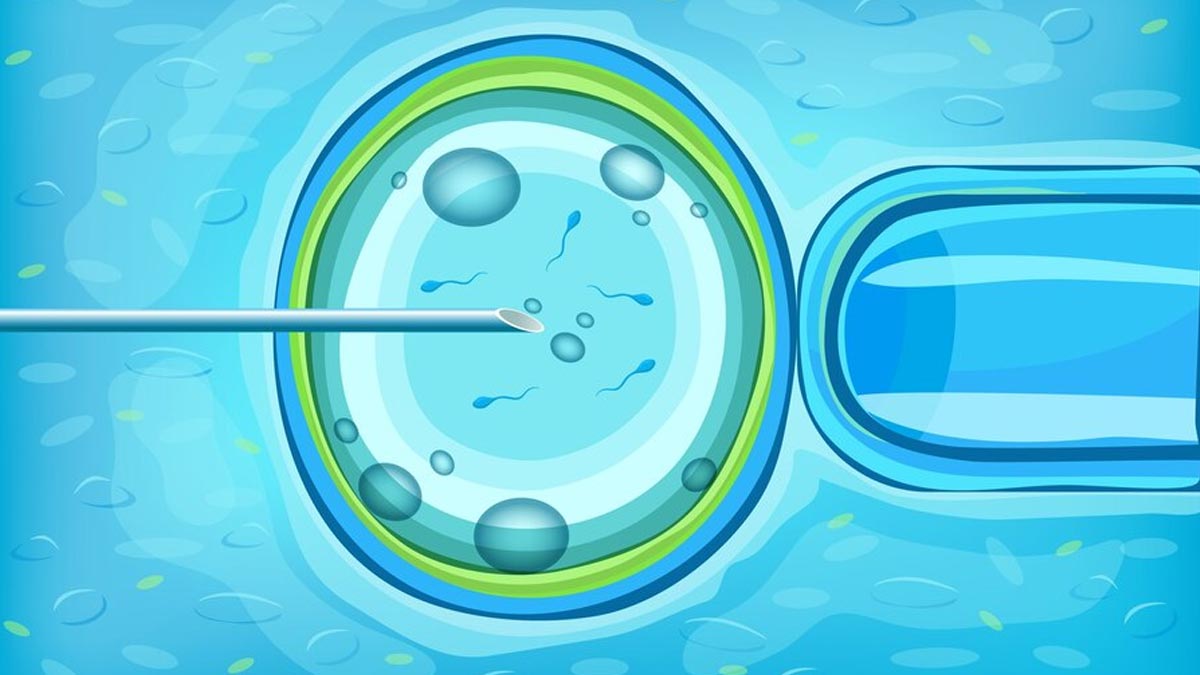
World IVF Day is a time to celebrate the advancements in reproductive technology that have helped countless couples realize their dream of parenthood. However, amidst the joy and hope, there are also concerns and misconceptions. One of the most persistent myths is the link between In Vitro Fertilisation (IVF) and autism.
Table of Content:-
To understand this link, the Onlymyhealth team spoke to Dr Anu Sadashiv B, Consultant Reproductive Medicine, Obstetric, Gynaecologist & Infertility Specialist, Milann Fertility Centre, Bengaluru.
Does IVF Infuence Autism?
One main rumour about IVF is that it can influence the risk of autism in the child born out of this process. According to a study published in the journal JAMA Network Open, a slightly higher risk of Autism Sprectrum Disorder (ASD) was observed in children born to individuals with infertility who underwent IVF.

However, Dr Sadashiv B cleared, “There is no cause-and-effect relationship between IVF and autism. Studies on the association between IVF and ASD have shown inconsistent results. IVF is known to increase the risk of perinatal problems but many of them are related to multiple pregnancies, advanced maternal age and infertility per se.”
Citing a study, she explained, “A large study in the United States of America, collected data on 5.9 million California births, and compared the incidence of ASD in IVF conception versus natural conception. Their research study reported that there is an association between IVF and autism, but when we control for the characteristics of women who are more likely to use IVF, for example, age and social status, this association is lessened significantly.”
Also Read: IVF Success Rates Drop 38% Due To Air Pollution, Study Reveals: Expert Explains How This Happens
She assured that the remaining risk of autism is mainly due to the large number of multiple births, preterm delivery and complications of pregnancy and delivery among children conceived with IVF. “These risk factors can be mitigated by opting for single embryo transfer,” she said.

Risk Factors That Increase Autism Risk?
According to the National Institute of Mental Health, genetic and environmental factors are the main causative factors of Autism. More than 100 genes have been identified to cause autism. Talking about the risk factors of Autism, Dr Sadashiv B listed:
- Infertility, maternal metabolic and inflammatory variables, and offspring epigenetic alterations are prenatal risk factors.
- There is a marginally higher ASD risk among children birthed to infertile individuals, regardless of fertility treatment.
- Adverse pregnancy outcomes, such as cesarean birth, multiple pregnancies, preterm birth, and severe neonatal morbidities, are associated with ASD risk.
To decrease the risk of ASD, Dr Sadashiv B suggested, “Efforts to decrease multifetal pregnancy following IVF should continue, along with the development of focused care pregnancy plans for sub-fertile individuals.”
Also Read: Suspect Your Child Has Autism? Expert Shares How It Can Be Heavy Metal Poisoning Instead
Common Misconceptions About IVF And Autism
So how do people think IVF causes ASD? Dr Sadashiv B answered, “Common misconceptions include increased risk of congenital anomalies, neurodevelopmental disorders and ASD in children born out of IVF. Genetics, environmental factors during pregnancy and the first few years of a child’s life, maternal age, education and socio-economic status are more important causative factors.”
She added, “IVF has been linked to increased incidence of ASD due to the associated factors like advanced maternal age, inherent metabolic and inflammatory derangement due to infertility, and obstetric and neonatal complications. The incidence of anomalies and ASD was similar in natural and assisted conception in large studies after adjusting for confounding factors.”
If you are concerned about the potential risk of autism if you are thinkling of going down the IVF path, Dr Sadashiv B assured that IVF is not harmful. But should be used only when indicated. Do not delay treatment as maternal age is the single most important success in IVF and increases the incidence of congenital anomalies and ASD. She concluded to minimise the number of procedures during IVF which may rarely cause epigenetic modifications.
Also watch this video
How we keep this article up to date:
We work with experts and keep a close eye on the latest in health and wellness. Whenever there is a new research or helpful information, we update our articles with accurate and useful advice.
Current Version